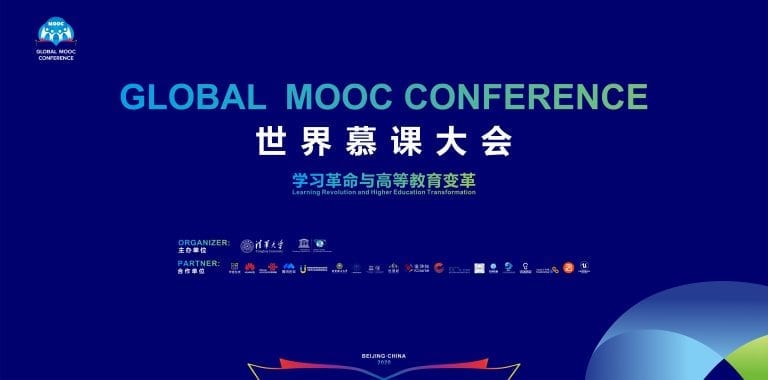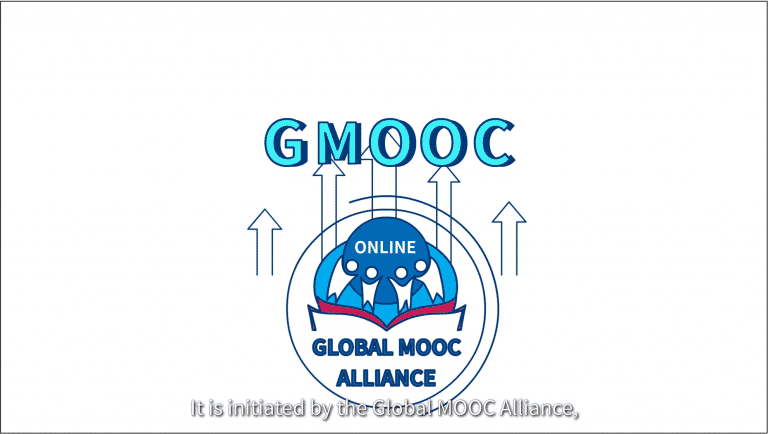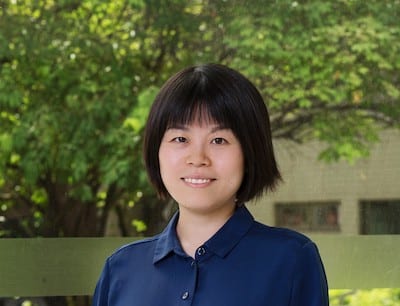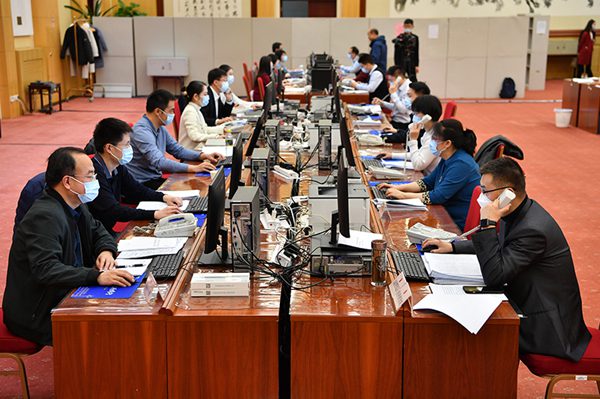The Global MOOC and Online Education Alliance will be hosting Hack9 (“Digital Transformation for a More Inclusive University Campus and Learning Environment”) of the Tsinghua University Global Summer School (GSS) 2022’s SDG Hackathon, which will be held virtually from July 4 to July 10, and we are pleased to invite you as a mentor and judge to guide student teams during the SDG Hackathon.
The SDG Hackathon has been added to Tsinghua GSS 2022 to incorporate the values of sustainable development and strengthen the cultivation of students’ innovative thinking, including leadership, creativity, mobility, international competence, and virtual teamwork skills. More than 1000 student innovators will choose one of the 11 “Hacks” (SDG Hackathon tracks) with themes related to different United Nations Sustainable Development Goals, then form virtual teams and work together to come up with innovative solutions to address the assigned challenge.
Mentors and judges are an integral part of the learning experience, as they will help coach and evaluate students’ innovative solutions. Students will learn to clearly define a specific social problem, assess its demand and impact scope, and come up with innovative and sustainable solutions.
If you are interested, please get in touch with Zhongxuan Zhang ([email protected]) by June 5. We are looking forward to hearing from you.
Best regards,
Global MOOC and Online Education Alliance Secretariat at Tsinghua University
Summary of Call for SDG Hackathon Mentors:
Ideal mentor profile:
- Practitioners. For example, university’s “Chief Diversity and Inclusion Officer”, “Chief Digital Learning Officer”; or
- Academia: For example, scholars or lecturers in online learning design, education equity, inclusive education, SDG 4, etc.
Expected time commitments of mentors:
If you are interested (even though you may not be available for all the expected commitments above), please get in touch with Zhongxuan Zhang ([email protected]) by June 5. For effective communication, we would be grateful if you could provide us with:
- Photo and brief bio (100-200 words)
- The topic of your “SDG Dialogue”, and when you will be available to deliver the one-hour lecture?
- Which “Mentor Clinics” slot(s) you will be available for?
- Which of the pitches you will be available for?
About Hack9 (“Digital Transformation for a More Inclusive University Campus and Learning Environment”)
- Hack9 organizer: Global MOOC and Online Education Alliance Secretariat at Tsinghua University
- Hack9 theme: “Digital Transformation for a More Inclusive University Campus and Learning Environment”
Inclusive education is a challenge for university systems. Among the United Nations Sustainable Development Goals (SDGs), Goal 4 “Ensure inclusive and equitable quality education and promote lifelong learning opportunities for all” is promoting a global 2030 agenda for the effective recognition of the rights of all people and the construction of a cohesive society that respects the principle of equal opportunities and non-discrimination.
When universities are identified with the principles of inclusion, diversity is valued, recognizing that there are different ways of learning and that all students bring things of value to the learning environment. In addition, it removes barriers linked to exclusionary practices and works proactively to respond to the needs of all learners. Inclusive practices can enrich the curriculum and the success of all students. Learning-centered approaches and Universal Design for Learning (UDL) have been shown to be effective in inclusive contexts. However, moves towards inclusion are taking place at different rates in different countries. Digital technology has considerable, but largely unused potential to support the inclusive education of disabled people and other minority groups. In particular, assistive technology (AT) can provide multiple means of presenting, representing, and expressing learning for disabled learners, overcoming barriers they would otherwise experience. It also has the potential to increase enjoyment and motivation. Online education has the potential to increase educational access too. Regardless, the major challenge remains that not all the initiatives consider the needs of disabled people.
- What are the often-ignored or unmet needs for university students with disabilities?
- How can digital technology help to promote quality learning experience for university students with special needs?
- How can we digitally transform university campus to be more inclusive of the diverse needs of students?
- How can the changes made also be beneficial and add values to the general student population?
More details about other tracks of the SDG Hackathon can be found here, and some of the topics include:
- Art & Design and making our meals greener
- Sustainable Solutions for Addressing Environmental Pollution
- Innovation Model of Energy Transition Development: Carbon Peaking and Carbon Neutrality
- Future Information Technology for Human Healthcare
- Building a Sustainable Lifestyle
- Communicating for Health and Sustainable Development
- Build an Intelligent and Sustainable Future with AI
- The Metaverse and Sustainable Development of Healthy Cities and Communities
- More decent job opportunities for youth
- Create Smarter and Healthier Community Life Circle
About Tsinghua GSS 2022 SDG Hackathon
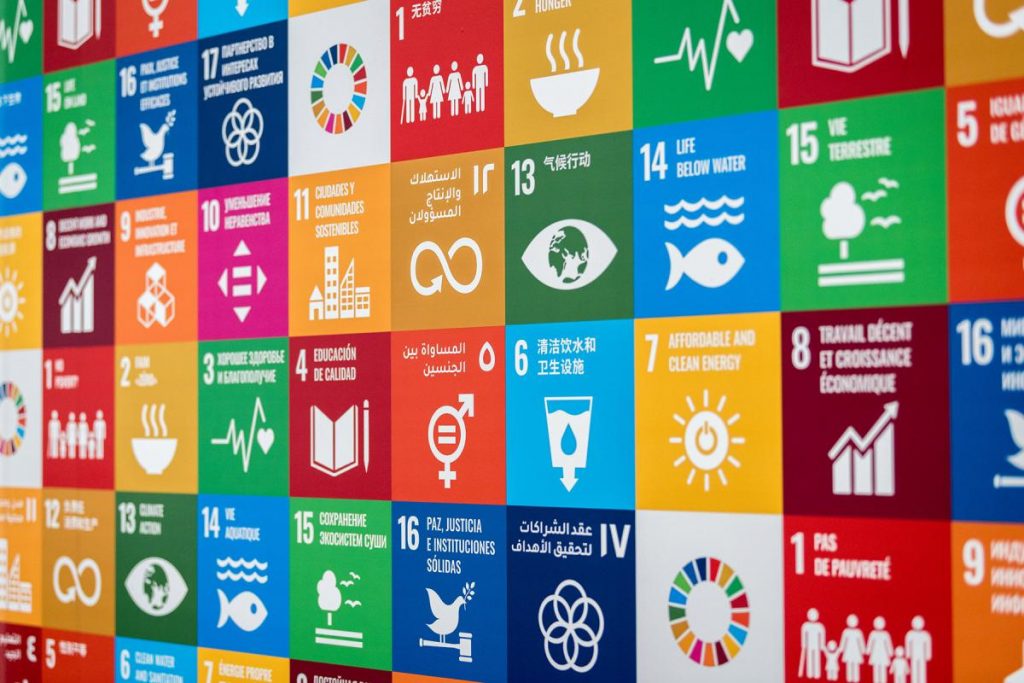
The SDG Hackathon has the 17 UN Sustainable Development Goals (SDG) in mind, designated as different themed sub-tracks, also known as hacks, to attract student innovators to participate.
There are no restrictions on grades, majors, or schools.
Students can freely choose challenging topics based on their interests, form interdisciplinary cross-cultural teams virtually, and develop innovative solutions. In the end, the solutions would be presented to the panel of judges. Outstanding teams will be then chosen to present their projects during the GSS closing ceremony.
At the SDG Hackathon, attendees will get the opportunity to network with some of the most forward-thinking students and academics from around the world, gain new perspectives, and be inspired by people from all walks of life. Tsinghua University and UNITAR (United Nations Institute for Training and Research) will also award participants with a certificate of participation. For reference and inspiration, last year’s GSS SDG Hackathon winning teams’ presentations can be found here: https://www.tsinghua.edu.cn/gss/info/1002/1311.htm
Tsinghua GSS 2022 SDG Hackathon schedule (Beijing time, GMT+8):
About Tsinghua Global Summer School (GSS) 2022
Tsinghua University (a founding member of the Global MOOC and Online Education Alliance) is delighted to launch Global Summer School (GSS) 2022, to serve as an exceptional interdisciplinary platform for emerging leaders. Over 2,000 young talents from 154 universities across 91 different countries and regions attended the virtual summer school in 2020 and 2021, undertaking courses taught by distinguished scholars and practitioners from China and abroad.
Tsinghua GSS 2022, themed A Healthy Planet for Sustainable Development, will explore innovative ways to solve critical challenges related to public health, society, economy, and environment, with sustainable development as a core reference point. The program, which will be delivered fully online between July 4th – 10th, will feature a carefully curated syllabus combining academic, cultural, and social engagements, and will be conducted entirely in English through online lectures, workshops, and an SDG Hackathon.
- Application timeline & website: May 10 – June 10; http://www.gss.tsinghua.edu.cn/
- GSS 2022 dates & website: July 4 – July 10; https://www.tsinghua.edu.cn/gss/
- Provision class schedule: https://www.tsinghua.edu.cn/gss/Class_Schedule.htm
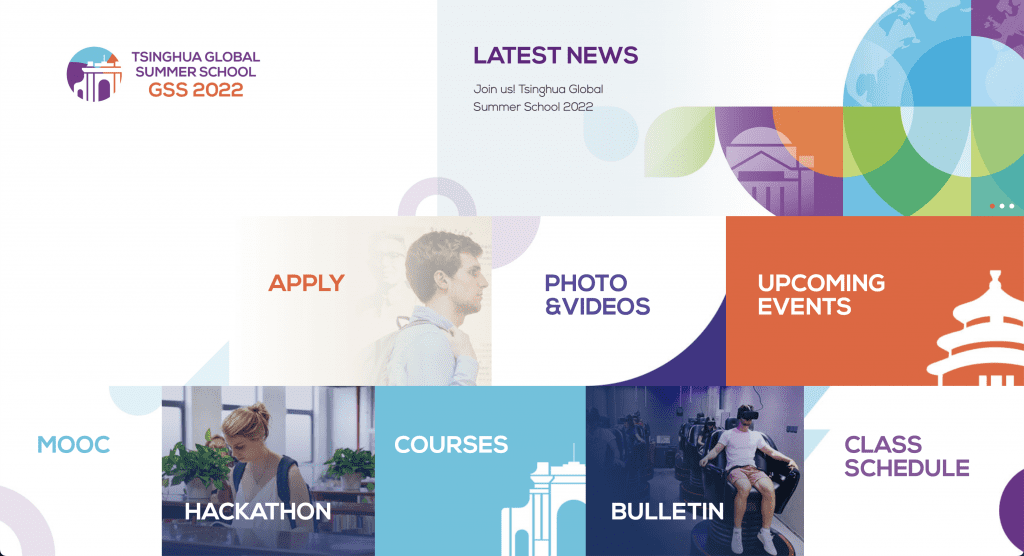
About Global MOOC and Online Education Alliance (GMA)
Global MOOC and Online Education Alliance was officially launched at the main conference of the Global MOOC Conference on 11 December 2020, with the first 20 members, including 17 world-leading universities and 3 online education platforms from 14 countries on all 6 continents and speaks 10 different languages.
Global MOOC Alliance is initiated by Tsinghua University, and co-founded by Cornell University, CRI (Center for Research and Interdisciplinarity), edX, Mongolian University of Science and Technology, Nanyang Technological University, Peking University, Politecnico di Milano, Rice University, RWTH Aachen University, Saint Petersburg University, Shanghai Jiao Tong University, Thai MOOC, Tsinghua University, University of Auckland, University of Chile, University of Manchester, University of Nairobi, University of Toronto, XuetangX, Zhejiang University.
On 24 April 2020, Tsinghua University and UNESCO jointly launched a special dialogue for global universities to discuss the new development of online education cooperation in facing global pandemic. On 11 December 2020, Tsinghua University initiated the establishment of the Global MOOC Alliance to unite universities around the world to meet the opportunities and challenges. The secretariat of Global MOOC and Online Education Alliance (GMA) is set up at Tsinghua University. To better reflect the diverse interests and activities, the alliance was renamed as Global MOOC and Online Education Alliance (GMA) by a unanimous decision of all members in December 2021.

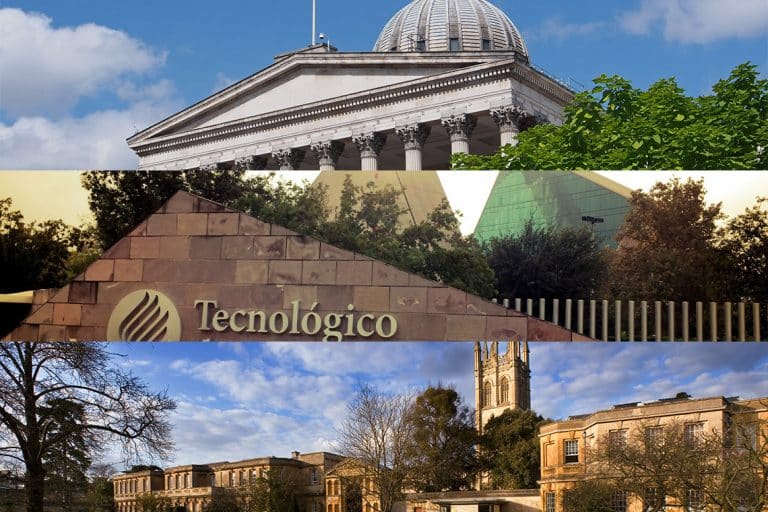
![[OED Host Reflect] XU Luping: “next generation to be trained to be innovative problem designers”](https://n6m6d6c3.rocketcdn.me/wp-content/uploads/2023/05/Screenshot-2023-06-06-at-00.34.15-768x432.png)
